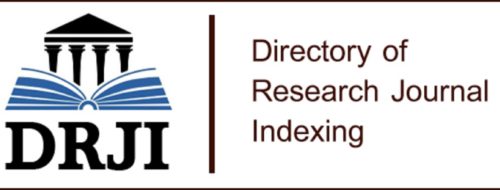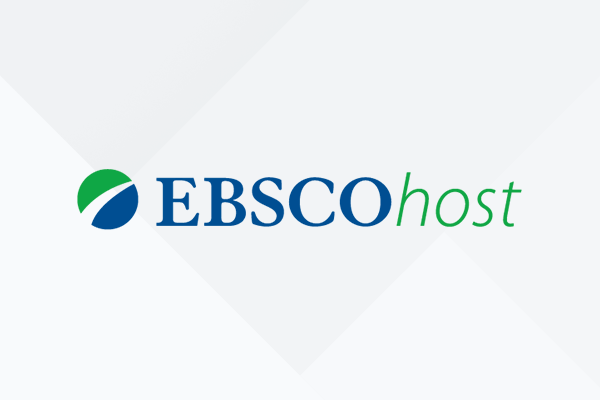Öz
Bu araştırmanın temel amacı, otantik liderlik, girişimcilik eğilimleri ve özyeterlilik algısı arasındaki ilişkileri tespit ederek etki düzeyine göre alandaki yazınlara katkıda bulunmaktır. Yapılan literatür taraması sonucunda bu değişkenlere yönelik sınırlı sayıda çalışmaların olması, bu çalışmayı önemli kılan bir faktör olmuştur.
Araştırma kısmı iki aşamadan oluşmuştur. İlk aşamada araştırma kapsamındaki değişkenlere yönelik daha önce yapılmış çalışmalarda, değişkenler arasındaki ilişkiler incelenmiş, anket formu oluşturulmuş ve veriler toplanmıştır. Çalışmada nicel araştırma yöntemi kullanılmıştır. Veriler anket yolu ile elde edilmiştir. Araştırma anketi Antalya ilinin Kemer ilçesinde faaliyet gösteren 2 dört yıldızlı ve 1 beş yıldızlı mavi yakalı otel çalışanlarına uygulanmıştır. Araştırmanın evrenini 240, örneklemini 130 çalışan kapsamaktadır. Araştırmanın örneklem büyüklüğü, örneklem büyüklüğü tablosuna esas alınarak bulunmuştur.
Elde edilen veriler bilgisayar ortamına aktarılmış ve analize uygun anket formları veri dosyasına işlenmiştir. Konuya ilişkin hipotezler geliştirilmiş ve bu hipotezlerin doğrulukları, desteklenip desteklenmediği araştırılmıştır. Hipotezleri test etmek amacı ile korelasyon, hiyerarşik regresyon analizleri uygulanmıştır. Hipotez testleri sonucu Otantik liderlik, girişimcilik eğilimleri ve özyeterlilik algısı arasındaki olumlu ilişkilerin olduğu belirlenmiştir. Otantik liderlik ve özyeterlilik algısının girişimcilik eğilimleri üzerinde kısmı aracılık etkisi tespit edilmiştir. Bu çalışma ilerde bu alanda yapılacak diğer çalışmalara ışık tutması beklenmektedir.
Anahtar Kelimeler
Otantik Liderlik, Girişimcilik Eğilimleri, Özyeterlilik Algısı
Kaynakça
- Akgündüz, Y. (2012). Konaklama işletmelerinde otantik liderlik ve öz yeterlilik arasındaki ilişkinin analizi. (Doktora tezi). Dokuz Eylül Üniversitesi, SBE, İzmir.
- Alves, H. and Mainardes, E.W. (2017). Self-efficacy, trust, and perceived benefits in the co-creation of value by consumers. International Journal of Retail and Distribution Management, Vol. 45 No. 11, pp. 1159-1180, doi: 10.1108/IJRDM-05-2016-0071.
- Attar, M. ve Çetinkaya, B. (2020). Otantik liderlik davranışının ve çevresel dinamizmin iç girişimcilik üzerindeki etkisi. Selçuk Üniversitesi Sosyal Bilimler Meslek Yüksekokulu Dergisi, Cilt: 23 Sayı:1.
- Bandura, A. (1977). Social learning theory. Englewood Cliffs, NJ: Prentice Hall.Bird.
- Bird, B. (1988). İmplementing entrepreneurial ıdeas: the case for intentions. Academy of Management Review, 13: 442-454.
- Bolat (2011). Öz yeterlilik ve tükenmişlik ilişkisi: lider-üye etkileşiminin aracılık etkisi. Ege Akademik Bakış / Ege Academic Revıewcilt, 11, Sayı: 2, Nisan 2011.
- Boyd, N.G. ve Vozikis, G.S. (1994). The influence of self-efficacy on the development of entrepreneurial ıntentions and actions. Entrepreneurship Theory and Practice, 63-75.
- Cho, H. and Lee, H. (2018). Entrepreneurial orientation, entrepreneurial education and performance. Asia Pacific Journal of Innovation and Entrepreneurship, Vol. 12 Issue: 2, pp.124-134, s.126.
- Çankır, B. (2017). Öz-yeterlilik ve değişime karşı direncin girişimcilik eğilimi üzerine etkisi. Uluslararası Ekonomik Araştırmalar Dergisi, Haziran 2017, Cilt:3, Sayı:2.
- Çetin, F. (2011). Örgüt içi girişimcilikte öz yeterlilik algısı ve kontrol odağının rolü. Business and Ekonomics Research Journal, Volume: 2, Number: 3, 2011, pp: 69-85.
- Çetin, O. ve Taşdemir, Ö. (2017). Girişimcilik kapasitesi ve bireysel yenilikçiliğin girişimcilik niyeti üzerine etkisi. Sosyal Bilimler Araştırma Dergisi, 6(3): 76-87.
- Çolakoğlu, H. ve Çolakoğlu, T. (2016). Üniversitelerdeki girişimcilik eğitimi ile öz yeterlilik algısı ve girişimcilik potansiyeli ilişkisi üzerine bir saha araştırması. Sosyal ve Beşeri Bilimler Araştırmaları Dergisi, Cilt:17, Sayı: 37.
- Doris ve Irena, (2013). The influence of personal and environmental factors on entrepreneurs' performance. Kybernetes, Vol. 42 No. 6, pp. 906-927.
- Flammer, A. (2001). Self-efficacy. International Encyclopedia of the Social & Behavioral Sciences, pp.13812-13815.
- Gangloff, B. ve Mazilescu, A. (2017). Algılanan öz-yeterliliğin normatif özellikleri, MDPİ, Soc. Sci. 139, s.1-2.
- Guicciardi, M. Carta, M., Pau, M., Cocco, E. (2018). Öz-yeterlik algısı ile öğretim performansı arasındaki ilişki: meksika okul öncesi ve ilkokul öğretmenleri örneği. Arab World English Journal (AWEJ) Cilt 9. Sayı 1.s.57.
- Gürbüz, S. ve Şahin, F. (2018). Sosyal bilimlerde araştırma yöntemleri felsefe – yönetim – analiz. Ankara: Seçkin Yayıncılık.
- Hatt, L. (2018). Threshold concepts in entrepreneurship – the entrepreneurs perspective. Education+ Training, (2): 155-167.
- Jensen, M. ve Luthans, F. (2006). Relationship between entrepreneurs' psychological capital and their authentic leadership. Journal of Managerial Issues, 18(2), 254–273.
- Jensen, M. ve Luthans, F. (2006). Entrepreneurs as authentic leaders: impact on employees’ attitudes. Leadership & Organization Development Journal.
- Kiersch, C. ve Peters, J. (2017). Leadership from the ınside out: student leadership development within authentic leadership and servant leaders hip frameworks. Journal of Leadership Education, 16/1, 148-168.
- Korkmaz, O. (2017). Otantik liderlik ve örgütsel güven, The Journal of Academic Social Science Studies, (58), 437-454.
- Kotaman, H. (2008). Özyeterlilik inancı ve öğrenme performansının geliştirilmesine ilişkin yazın taraması. Eğitim Fakültesi Dergisi XXI (1), 111-133.
- Köksal, F. (2008). Antrenörlerin liderlik tarzları ile öz yeterlikleri arasındaki ilişki. (Yayınlanmış Yüksek lisans Tezi). Selçuk Üniversitesi Sosyal Bilimler Enstitüsü, Konya.
- Man, M.R.D.R. (2011). Leadersih and self-efficacy towards mission accomplishment among the nursing faculty of the lyceum of the philippines university. E-International Scientific Research Journal, 3/4, 225-23.
- Örücü, E., Şeker, C. ve Kaya, A. (2020). Özyeterlilik algısı ve liderlik tarzı ilişkisinde iş tatmininin aracılık rolü. Uluslararası Toplum Araştırmaları Dergisi, Cilt:15, Sayı:24.
- Ribeiro, N., Duarte, P. and Fidalgo, J. (2020). Authentic leadership’s effect on customer orientation and turnover intention among Portuguese hospitality employees The mediating role of affective commitment. International Journal of Contemporary Hospitality Management, Vol. 32 No. 6, pp. 2097-2116, 2098.
- Sabuncu, G. (2017). Anadolu üniversitesi işletme fakültesi öğrencilerinin girişimcilik niyetleri ve çevresel tutumlarını ölçmeye yönelik bir araştırma. (Yayımlanmamış Yüksek Lisans Tezi). Anadolu Üniversitesi Sosyal Bilimler Enstitüsü.
- Schyns, B., Torka, N. ve Gössling, T. (2007). Turnover ıntention and preparedness for change exploring leader-member exchange and occupational self-efficacy as antecedents two employability predictors. Career Development International, 12(7):660-679.
- Talia (2010). Gender, entrepreneurial self efficacy, and entrepreneurial attitude orientations: the case of the caribbean. International Business & Economics Research Journal, Volume 9, Number 13.
- Toma, G., Grigorea, A.M., Marinescua, P. (2014). Economic development and entrepreneurship. Procedia Economics and Finance, 437.
- Valsania S. E., Moriano J. A., and Molero F. (2014). Authentic leadership and ıntrapreneurial behavior: cross-level analysis of the mediator effect of organizational ıdentification and empowerment. International Entrepreneurship and Management Journal, 12 (1):1-25.
- Valsania, S. E., Moriano, J. A., and Molero, F. (2016). Authentic leadership and intrapreneurial behavior: Cross-level analysis of the mediator effect of organizational identification and empowerment. International Entrepreneurship and Management Journal, 12(1), 131–152.
- Yılmaz, A., Çelik, A., ve Ulukapı, H. (2013). Otantik ve dönüşümcü liderlik düzeyi algılamasının çalışanların iç girişimcilik eğilimleri üzerindeki etkisinin belirlenmesi: Konya ilinde bir araştırma. 21. Ulusal Yönetim ve Organizasyon Kongresi Kitabı, 17-22.
- Zeynalova, U. (2019). Kadın girişimcilerin karşılaştıkları sorunlar: küçük ölçekli işletme sahipleri üzerine bir araştırma. (Yayımlanmamış Yüksek Lisans Tezi). Akdeniz Üniversitesi Sosyal Bilimler Enstitüsü.
THE IMPACT OF INTERVENTION BY THE PERCEPTION OF SELF-EFFICACY ON THE RELATIONSHİP BETWEEN AUTHENTIC LEADERSHIP AND ENTREPRENEURSHIP TRENDS
Öz
Anahtar Kelimeler
Authentic Leadership Entrepreneurship Trends Perception of Self-efficacy
Kaynakça
- Akgündüz, Y. (2012). Konaklama işletmelerinde otantik liderlik ve öz yeterlilik arasındaki ilişkinin analizi. (Doktora tezi). Dokuz Eylül Üniversitesi, SBE, İzmir.
- Alves, H. and Mainardes, E.W. (2017). Self-efficacy, trust, and perceived benefits in the co-creation of value by consumers. International Journal of Retail and Distribution Management, Vol. 45 No. 11, pp. 1159-1180, doi: 10.1108/IJRDM-05-2016-0071.
- Attar, M. ve Çetinkaya, B. (2020). Otantik liderlik davranışının ve çevresel dinamizmin iç girişimcilik üzerindeki etkisi. Selçuk Üniversitesi Sosyal Bilimler Meslek Yüksekokulu Dergisi, Cilt: 23 Sayı:1.
- Bandura, A. (1977). Social learning theory. Englewood Cliffs, NJ: Prentice Hall.Bird.
- Bird, B. (1988). İmplementing entrepreneurial ıdeas: the case for intentions. Academy of Management Review, 13: 442-454.
- Bolat (2011). Öz yeterlilik ve tükenmişlik ilişkisi: lider-üye etkileşiminin aracılık etkisi. Ege Akademik Bakış / Ege Academic Revıewcilt, 11, Sayı: 2, Nisan 2011.
- Boyd, N.G. ve Vozikis, G.S. (1994). The influence of self-efficacy on the development of entrepreneurial ıntentions and actions. Entrepreneurship Theory and Practice, 63-75.
- Cho, H. and Lee, H. (2018). Entrepreneurial orientation, entrepreneurial education and performance. Asia Pacific Journal of Innovation and Entrepreneurship, Vol. 12 Issue: 2, pp.124-134, s.126.
- Çankır, B. (2017). Öz-yeterlilik ve değişime karşı direncin girişimcilik eğilimi üzerine etkisi. Uluslararası Ekonomik Araştırmalar Dergisi, Haziran 2017, Cilt:3, Sayı:2.
- Çetin, F. (2011). Örgüt içi girişimcilikte öz yeterlilik algısı ve kontrol odağının rolü. Business and Ekonomics Research Journal, Volume: 2, Number: 3, 2011, pp: 69-85.
- Çetin, O. ve Taşdemir, Ö. (2017). Girişimcilik kapasitesi ve bireysel yenilikçiliğin girişimcilik niyeti üzerine etkisi. Sosyal Bilimler Araştırma Dergisi, 6(3): 76-87.
- Çolakoğlu, H. ve Çolakoğlu, T. (2016). Üniversitelerdeki girişimcilik eğitimi ile öz yeterlilik algısı ve girişimcilik potansiyeli ilişkisi üzerine bir saha araştırması. Sosyal ve Beşeri Bilimler Araştırmaları Dergisi, Cilt:17, Sayı: 37.
- Doris ve Irena, (2013). The influence of personal and environmental factors on entrepreneurs' performance. Kybernetes, Vol. 42 No. 6, pp. 906-927.
- Flammer, A. (2001). Self-efficacy. International Encyclopedia of the Social & Behavioral Sciences, pp.13812-13815.
- Gangloff, B. ve Mazilescu, A. (2017). Algılanan öz-yeterliliğin normatif özellikleri, MDPİ, Soc. Sci. 139, s.1-2.
- Guicciardi, M. Carta, M., Pau, M., Cocco, E. (2018). Öz-yeterlik algısı ile öğretim performansı arasındaki ilişki: meksika okul öncesi ve ilkokul öğretmenleri örneği. Arab World English Journal (AWEJ) Cilt 9. Sayı 1.s.57.
- Gürbüz, S. ve Şahin, F. (2018). Sosyal bilimlerde araştırma yöntemleri felsefe – yönetim – analiz. Ankara: Seçkin Yayıncılık.
- Hatt, L. (2018). Threshold concepts in entrepreneurship – the entrepreneurs perspective. Education+ Training, (2): 155-167.
- Jensen, M. ve Luthans, F. (2006). Relationship between entrepreneurs' psychological capital and their authentic leadership. Journal of Managerial Issues, 18(2), 254–273.
- Jensen, M. ve Luthans, F. (2006). Entrepreneurs as authentic leaders: impact on employees’ attitudes. Leadership & Organization Development Journal.
- Kiersch, C. ve Peters, J. (2017). Leadership from the ınside out: student leadership development within authentic leadership and servant leaders hip frameworks. Journal of Leadership Education, 16/1, 148-168.
- Korkmaz, O. (2017). Otantik liderlik ve örgütsel güven, The Journal of Academic Social Science Studies, (58), 437-454.
- Kotaman, H. (2008). Özyeterlilik inancı ve öğrenme performansının geliştirilmesine ilişkin yazın taraması. Eğitim Fakültesi Dergisi XXI (1), 111-133.
- Köksal, F. (2008). Antrenörlerin liderlik tarzları ile öz yeterlikleri arasındaki ilişki. (Yayınlanmış Yüksek lisans Tezi). Selçuk Üniversitesi Sosyal Bilimler Enstitüsü, Konya.
- Man, M.R.D.R. (2011). Leadersih and self-efficacy towards mission accomplishment among the nursing faculty of the lyceum of the philippines university. E-International Scientific Research Journal, 3/4, 225-23.
- Örücü, E., Şeker, C. ve Kaya, A. (2020). Özyeterlilik algısı ve liderlik tarzı ilişkisinde iş tatmininin aracılık rolü. Uluslararası Toplum Araştırmaları Dergisi, Cilt:15, Sayı:24.
- Ribeiro, N., Duarte, P. and Fidalgo, J. (2020). Authentic leadership’s effect on customer orientation and turnover intention among Portuguese hospitality employees The mediating role of affective commitment. International Journal of Contemporary Hospitality Management, Vol. 32 No. 6, pp. 2097-2116, 2098.
- Sabuncu, G. (2017). Anadolu üniversitesi işletme fakültesi öğrencilerinin girişimcilik niyetleri ve çevresel tutumlarını ölçmeye yönelik bir araştırma. (Yayımlanmamış Yüksek Lisans Tezi). Anadolu Üniversitesi Sosyal Bilimler Enstitüsü.
- Schyns, B., Torka, N. ve Gössling, T. (2007). Turnover ıntention and preparedness for change exploring leader-member exchange and occupational self-efficacy as antecedents two employability predictors. Career Development International, 12(7):660-679.
- Talia (2010). Gender, entrepreneurial self efficacy, and entrepreneurial attitude orientations: the case of the caribbean. International Business & Economics Research Journal, Volume 9, Number 13.
- Toma, G., Grigorea, A.M., Marinescua, P. (2014). Economic development and entrepreneurship. Procedia Economics and Finance, 437.
- Valsania S. E., Moriano J. A., and Molero F. (2014). Authentic leadership and ıntrapreneurial behavior: cross-level analysis of the mediator effect of organizational ıdentification and empowerment. International Entrepreneurship and Management Journal, 12 (1):1-25.
- Valsania, S. E., Moriano, J. A., and Molero, F. (2016). Authentic leadership and intrapreneurial behavior: Cross-level analysis of the mediator effect of organizational identification and empowerment. International Entrepreneurship and Management Journal, 12(1), 131–152.
- Yılmaz, A., Çelik, A., ve Ulukapı, H. (2013). Otantik ve dönüşümcü liderlik düzeyi algılamasının çalışanların iç girişimcilik eğilimleri üzerindeki etkisinin belirlenmesi: Konya ilinde bir araştırma. 21. Ulusal Yönetim ve Organizasyon Kongresi Kitabı, 17-22.
- Zeynalova, U. (2019). Kadın girişimcilerin karşılaştıkları sorunlar: küçük ölçekli işletme sahipleri üzerine bir araştırma. (Yayımlanmamış Yüksek Lisans Tezi). Akdeniz Üniversitesi Sosyal Bilimler Enstitüsü.
Ayrıntılar
| Birincil Dil | Türkçe |
|---|---|
| Bölüm | Makaleler |
| Yazarlar | |
| Erken Görünüm Tarihi | 28 Nisan 2022 |
| Yayımlanma Tarihi | 29 Nisan 2022 |
| Kabul Tarihi | 12 Aralık 2021 |
| Yayımlandığı Sayı | Yıl 2022 Sayı: 61 |
Cited By
Algılanan Özyeterlilik ve Kontrol Odağının Girişimciliğe Etkisi
Akdeniz Spor Bilimleri Dergisi
https://doi.org/10.38021/asbid.1348537
SPOR BİLİMLERİ FAKÜLTESİ ÖĞRENCİLERİNİN BİREYSEL GİRİŞİMCİLİK VE LİDERLİK DAVRANIŞLARINA İLİŞKİN ÖZ ALGILARININ İNCELENMESİ
Spor ve Performans Araştırmaları Dergisi
https://doi.org/10.17155/omuspd.1193189













ERÜ İktisadi ve İdari Bilimler Fakültesi Dergisi 2021 | iibfdergi@erciyes.edu.tr
Bu eser Creative Commons Atıf-Gayri Ticari-Türetilemez 4.0 Uluslararası Lisansı ile lisanslanmıştır.



